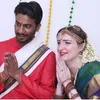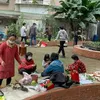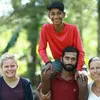COVID-19 Diary: The importance of gratitude and empathy – experiences of a Ukrainian expat in India
Being stuck at home makes life less than wonderful. But there are still things one can do to appreciate life at a time when others are so hard hit, as this Ukrainian designer explains.
What a way the coronavirus has spread around the world, destroyed so many lives, and wrecked the plans and dreams of so many people! I am a designer from Ukraine, and got married to an Indian a month ago – we now live in Delhi.
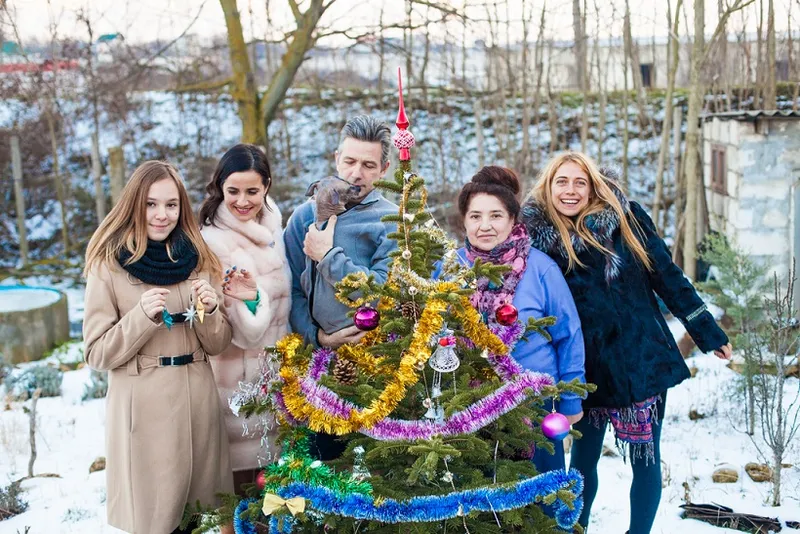
The celebration of the wedding, and the Hindu ceremonies were supposed to happen in April, in Goa. Now, all of it is postponed at least till October. But that is the least of the worries, given the crisis facing the world.
Early years
I was born in Kyiv, Ukraine. Many people may know this country only because of Shevchenko - Ukraine's famous football player, or because of Chernobyl, where the nuclear power plant accident happened 35 years ago. Due to tough political, social and economic conditions, many of us have left Ukraine for good.
My brother is still there – he's a young programmer who is also seriously thinking about life, abroad. I started working early. By the age of 17, I was working as a waitress and even played the guitar in a subway to make some pocket money. A year later, I switched to filmmaking studies in university, thanks to distance learning courses.
I became an assistant designer in an advertising agency. Photoshop was a hobby from my early years. My father used it for work, so it was easy to learn the software.
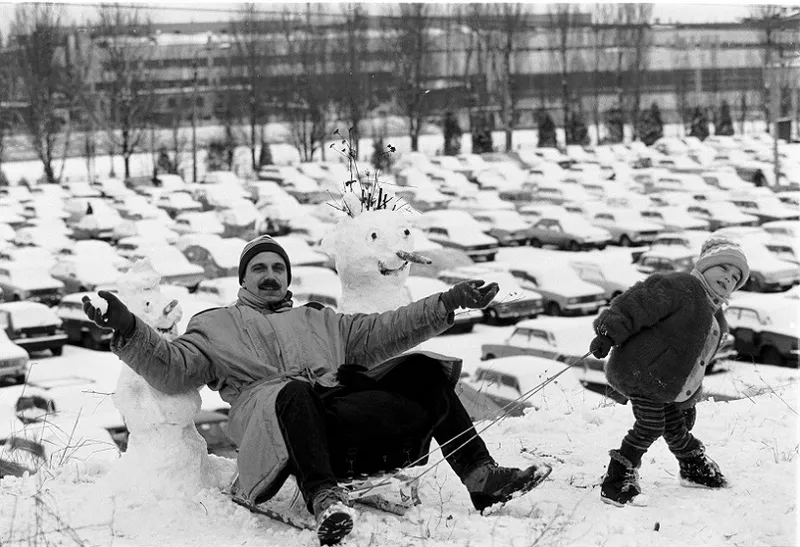
Move to India
I left Ukraine ten years ago. Most of that time I spent in Bali, working as a wedding photographer. In Asia, I finally felt alive, enjoying the breathtaking beauty of nature, street food, and happy, friendly people all around. After a few years, I fell in love with an Indian who was working on a project in Jakarta. We shifted to Dubai, and then to India, two years ago.
The transition wasn't easy – his family said that the alignment of his stars was not good, and he had to wait for almost two years before bringing me to Delhi. Even after his stars improved, his parents were against me, but he stood strong.
Finally, my mother-in-law accepted our relationship. Now, she talks to me, cracks jokes in Hindi, and gives me small assignments. My father-in-law has not spoken a single word to me. When I tried touching his feet, as a sign of respect, he walked away.
I insisted on staying separately from his parents. That's the culture in Ukraine: young couples stay with the parents only if they are extremely poor, and can't afford to rent a separate house.
My husband used to travel a lot for work, but he always took me along. Every month, we used to travel for two weeks. Mostly it was to Indonesia, Dubai, Singapore, and Malaysia. It feels very unusual to be in the same place for so long, now that we can't leave the country due to the coronavirus. But to be honest, I was also missing the peace of staying at home.
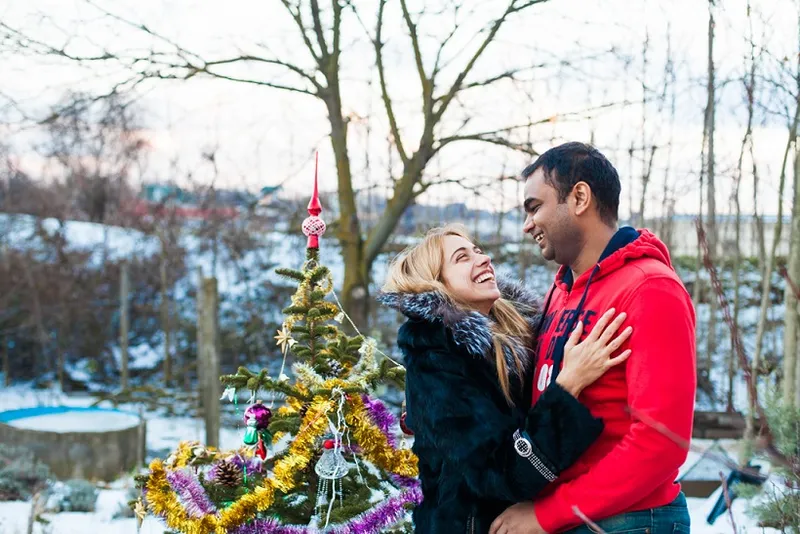
The world of design
I still do graphic design, but I have mostly shifted to stock photography. It means that people all over the world buy my images to use for advertising purposes. Some of those overjoyed models that you see on billboards and banners are clicked by me!
I also design logos, websites, brochures, and book covers for clients in the UAE, Ukraine, and Canada. A couple of days ago, I made the design for an online course on copywriting. I believe it will be popular as even I purchased some online classes to fill time during this stay-home period.
I used to pick up every designing job that came my way, but now I have support from my husband, so I take only projects that I enjoy, that too from a few old clients. I don't work with Indian clients since I am not allowed to do commercial activities here for two more years.
COVID-19 outbreak
When I first heard about COVID-19, I thought the panic was unnecessary because the death-rate was low. My family started sanitising every object after returning home, and even scolded me for touching the staircase railings. I saw it as an irritating complication at first, and only after the country shut down, did I become serious.
I don't read the news because I believe I will get to know what really matters from people around me. I may not be able to talk politics of the world, but I live a peaceful life, without pessimistic predictions, and unnecessary worrying. Once, I accidentally read an article that said the coronavirus was created to implant microchips into people's heads – what nonsense!
I am a member of a WhatsApp group for Russian-speaking women in Delhi. Recently, it hosted so many discussions on coronavirus that the admin had to create a separate group. Discussions there hit more than 600 messages a day.
Members helped translate the prime minister's speeches and clarified updates to regulations. Some of the members wanted to leave for their respective countries, and got information on evacuation. Others seek tips on domestic topics – like how to preserve vegetables longer so as to not go out for groceries too often.
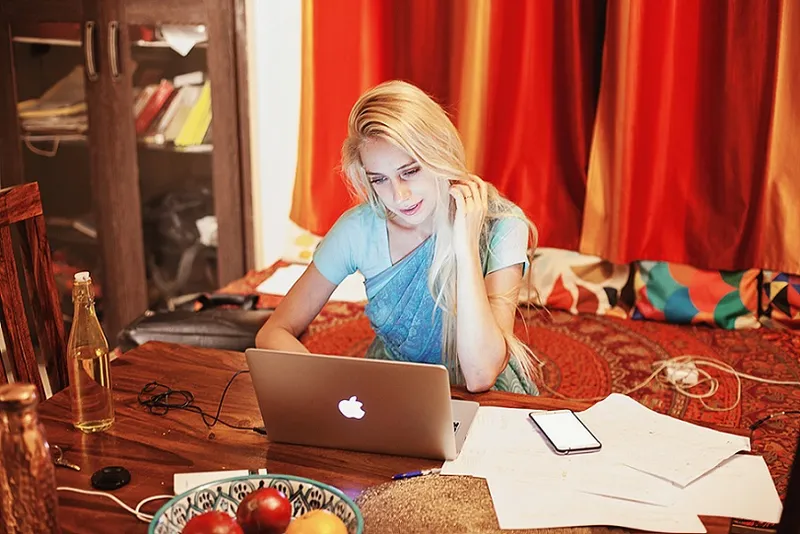
Work from home
Work from home isn't new for me – that is how freelancers work. In Ukraine, I could go to a so called "time-cafe" – a cosy space where you pay per hour, and get free coffee, cookies and unlimited internet. India doesn't offer such facilities, and Vasant Kunj doesn't even have a cafe with good WiFi where I could work with my laptop. So the only option here is to work from home.
The only change is that now my husband stays with me 24X7. It was tough to start with, as he loves cleanliness: every second day we were spending two hours cleaning every corner of our three-bedroom house. By now, I have developed the habit of doing the dishes and sweeping the floor on my own. It's not unbearable any more, but I'm still looking forward to the day when our domestic help is allowed to return.
Twice a week, I have a conference call with 35 people. I conduct fun activities for my husband's team. Now that everyone is isolated, it's very refreshing to socialise, even online. We play Pictionary – on the ‘Paint’ application – by sharing screens, read tongue twisters, do quizzes, and so on. On a recent Sunday, we had an Easter-egg colouring competition.
My husband is into analytics, and he took time to write a few articles on COVID-19 predictions and economic recovery. He wrote a paper on coronavirus in India as well, but the government has issued a law that forbids spreading this kind of information, so it was never published. I made the illustrations for his articles, with watercolour and collage techniques.
A different routine
My hobby is sarees. I have quite a big pile of beautiful, colourful pieces. I used to wear them daily, but now they get out of the wardrobe only for the rare trips to the grocery store, and for the small prayers that we do at home.
Before the lockdown, I kept myself healthy with regular jogging. Now I run up and down the stairs, inside the house itself, at least 50 times per session. It is followed by yoga and stretching.
Actually, I enjoy exercising at home: I can adjust the temperature with fans and there are no other joggers to obstruct the way. My routine takes 45 minutes to complete and I hope it's enough to stay fit. So far, I don't seem to be gaining weight.
I noticed that in few shops the face masks have become compulsory, so I stitched cotton ones at home. They don't look great, and, to be honest, I don't believe that they actually can protect you. But if someone feels safer with them, so be it.
My parents-in-law's house is walkable from ours, around 2.5 kilometres. Once every few days, we deliver vegetables and other necessities to them, after disinfecting everything. Usage of cars is restricted, so we walk on foot. We also donated some money to the Earth Saviour Foundation to feed the hungry.
One thing I was missing a lot was meat. Finally, I came across a butcher's store that was open. So now apart from dal, rice, and vegetables, we eat chicken curry, livers, sausages – much more non-vegetarian food than before. I also learned to make chapattis. I couldn't make them puff up for two years, but now they are perfectly round!
We go for grocery shopping once in two days. Despite Vasant Kunj being an up-market area, people don't understand the concept of social distancing and keep standing close. Sometimes you have to ask them to move away.
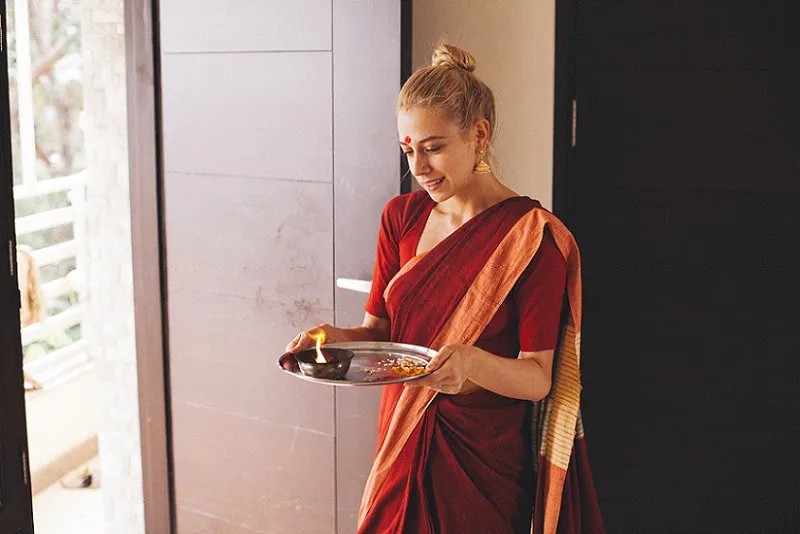
I tried using home delivery instead but usually, all the slots are booked, so it's not an option nowadays. I've seen a few delivery boys at the gate (they are not allowed inside), which means some people have been lucky to get those slots.
I still meet the neighbours on the way to the shop, but the interactions are much rarer. The colony looks empty – even the elders don't come out to sit under the sun as before. A few people are still using their cars – I wonder if they have a permit.
But little adventures happen inside our living area itself. A colourful green bird has been coming to my window, knocking on the glass with its beak. Another bird has made a nest and laid tiny eggs on my balcony. Monkeys keep coming to the terrace as well.
COVID in Ukraine and Russia
Ukraine has also been recommending people to stay indoors, but my father is a photojournalist, so he has to be outside, and always in the middle of things. But I believe he'll be safe, as he diligently sanitises his camera, clothes, remote controls, and switches at home. He is able to take some unique pictures nowadays, as Kiev is totally empty.
My aunt and grandmother stay in Crimea – the resort peninsula in Russia. They told me that hotels and sanatoriums around were almost full during lockdown, as people from all over Russia treated the quarantine as vacation time.
My family was supposed to come for the wedding too, and we booked more than 30 flight tickets in total. While Indian airlines allowed us to reschedule flights for free, some Russian air carriers didn't officially cancel the flights, and there will be no refunds.
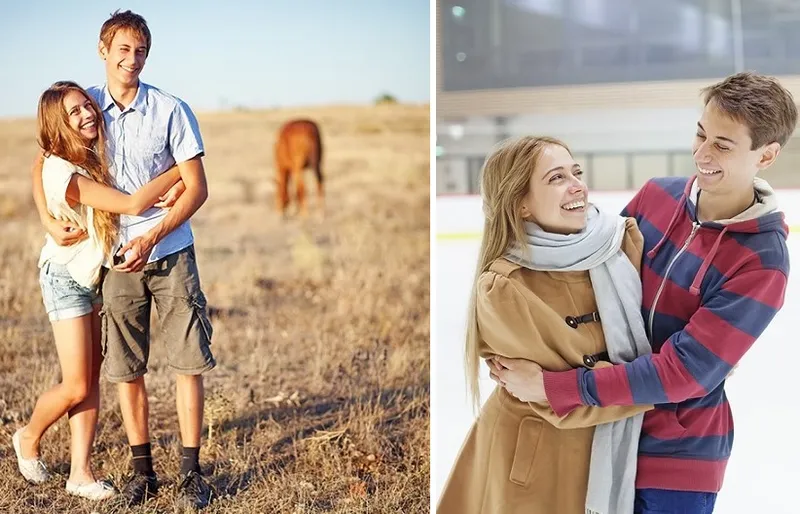
The wedding was supposed to be a two-day affair, hosted in a spacious venue on the riverbank in Goa, with 80 people from multiple countries. The ceremonies were to happen the Hindu way. It was I who refused to have a Christian wedding: I don't want to resonate with the religion of my ancestors.
Moreover, Catholics make you pass an exam on family life before they allow the marriage. I have never been to an Indian wedding, so I am looking forward to having mine when the coronavirus threat is over.
Ups and downs
I'm lucky to be in India during the lockdown, as I can be with someone I love. I heard stories of people who got separated from their spouses, and even kids, because of the visa suspension. The government should have allowed at least dependent visa holders to enter the country, even through the quarantine.
My worry now is my own visa – I entered on a tourist visa and now it needs to be changed to a family one. It has to be done before the visa expires, otherwise, I'll have to leave the country to apply again.
I'm still collecting the documents, which is not easy when everybody stays at home. After a few years, I'll be able to get an Indian passport too, but I'll think twice before switching to it. The Ukrainian passport offers visa-free entry to many more countries.
The road ahead
When a coronavirus vaccine or cure is introduced and we all can safely come out of our homes, it will be nice to return to normal life. I'll have a great shoot with three models or more, attend any workshop I can (just to see new people around), and of course enjoy our wedding!
Many of us are having a tough time right now – being locked down makes life less than wonderful. What I’ve learned over the years is that the only thing that separates us, from happiness, is our stressful thoughts about the situation, and a non-acceptance of what is.

There are many techniques that one can use to work on these thoughts and remain happy in any life situation. Mostly, they are different kinds of meditation. What suited me the most is The Work by Byron Katie. The little book is available online for free, and I believe it can make anyone's life more peaceful and cheerful.
The best gem of a lesson I have ever found on relationships between people is non-violent communication. It is the way to interact that allows natural empathy to flourish. When someone is not nice to you, there's usually nothing but an unmet need behind it.
By understanding the needs of others and your own, and by putting aside the concept of always proving yourself right, one can open a beautiful world without conflict and violence. May we all live in this kind of beautiful post-COVID world!
Edited by Aparajita Saxena
(Disclaimer: The views and opinions expressed in this article are those of the author and do not necessarily reflect the views of YourStory.)




